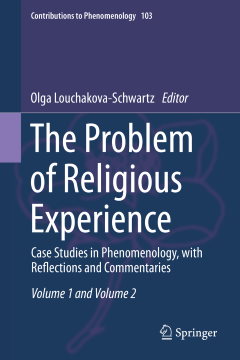Repository | Book | Chapter

(2019) The problem of religious experience, Dordrecht, Springer.
This chapter concerns the meaning of identity and vocation in the experience of mystical and contemplative life. It employs various perspectives (biblical, mystical, existential, and psychological) to elucidate the investigated phenomena in their essential structures. First, we are led toward the deepest structures and constitutive movements of a human person as they are found in mysticism of Saint John of the Cross. The meaning of idolatry and possessive ways of self-appropriation are discussed. Later on, peering into the biblical experience of vocation, vocation as telos and orientation is demonstrated. In the process of uncovering the authentic identity, the crucial role of the mechanism of dispossession and the presence of the elusive "primordial call" is revealed. Keeping the principle of "precedence of being," personal narratives and accepted roles and functions of an individual need to remain nourished by Being in order for them to stay vocationally significant and efficient. "Vocational identity" is defined as the identity discovered, appropriated, and sustained in and through the experience of the primordial call. Mystical elusiveness proves to be the only firm standpoint for the appropriation of one's own true 'self," for approaching the sense of one's true personal identity, and for discovering and developing his or her vocational dimension.
Publication details
DOI: 10.1007/978-3-030-21575-0_19
Full citation:
Trajtelová, (2019)., On vocation and identity in Western mysticism, in O. Louchakova-Schwartz (ed.), The problem of religious experience, Dordrecht, Springer, pp. 313-329.
This document is unfortunately not available for download at the moment.



